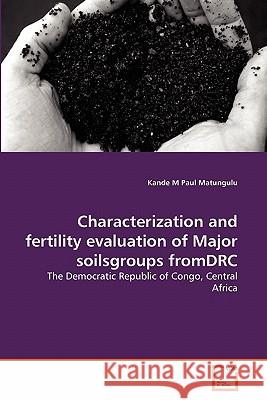Characterization and fertility evaluation of Major soilsgroups fromDRC » książka
Characterization and fertility evaluation of Major soilsgroups fromDRC
ISBN-13: 9783639297195 / Angielski / Miękka / 2010 / 152 str.
This study sought to characterize soils from D.R. Congo and devise fertility capability classification interpretations for their agronomic use. Twenty 24 soil pedons were sampled in seven administrative provinces selected to represent the most commonly used landscape positions and to include soils from a variety of soil parent materials occuring throughout the country. Most of the soils studied have both surface and subsoil acidity problems, they have low available phosphorus and total nitrogen contents, and a low capacity to supply potassium. Half of the pedons studied have low contents of Zn, Cu and Mn. In general these conditions are present in ultisols, oxisols and entisols formed from felsic parent materials, Kalahari sands and reworked sediments. Distinct exceptions are the soils formed from basalt, volcanic ash, ferro-magnesian and limestone that have close to neutral pH values and high base saturation. These soils have a range of P sorption characteristics from less than 10 to 120 ug P/g of soil. Soil fertility capability classification (FCC) derived using soil characterization data have shown a wide range of soil management options for an optimal crop production.











